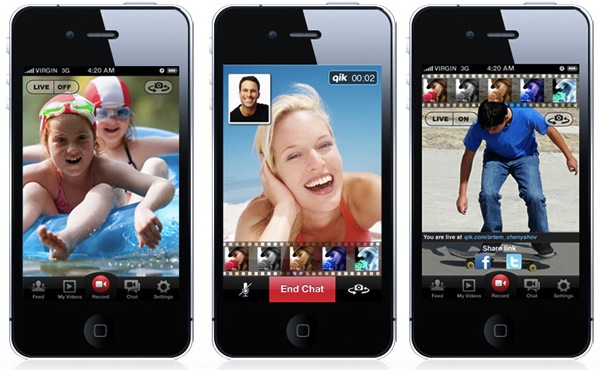The Qik and the dead

Can it only be a week ago that Microsoft announced an agreement to buy Skype for a stunning $8.5 billion? The investment group selling Skype will make more than $5 billion on its September 2009 investment -- pay off that is sure to send venture capitalist vultures circling around the craziest Silicon Valley startups. But there's a cautionary tale -- a troubling backstory: The fate of Qik.
It's a far too common story, and Microsoft has been there before: Somebody buys a tech company that recently acquired a smaller one, which gets lost in the acquisition. Skype bought Qik in January for around $100 million. Qik's fate is perhaps the great uncertainty in the Skype acquisition, and none of the companies involved will say anything during the quiet period between regulatory approval and the deal closing.
Microsoft has been down this road before. In June 2004, aQuantive bought SBI.Razorfish for $160 million. It was a big acquisition for aQuantive, its largest, like Qik was for Skype. But it was bite size for Microsoft, which bought aQuantive three years later for about $6 billion -- the software giant's largest acquisition at the time. That distinction now belongs to Skype. The renamed Avenue A/Razorfish provided valuable ancillary advertising services that were important to aQuantive but not to Microsoft. Razorfish's luster turned dull under Microsoft ownership. Despite being one of the world's largest interactive advertising agencies, Avenue A/Razorfish didn't fit with Microsoft's objectives for online ad agency aQuantive. Less than two years after the aQuantive deal closed, Microsoft sold Avenue A/Razorfish to Publicis Groupe. If only Qik could be so lucky.
Qik isn't exactly core to Microsoft's stated reasons for buying Skype. Qik's core functionality is mobile video capture and sharing -- or, better stated -- self broadcasting in real time. As a journalist I find Qik and technologies like it to be fascinating. Video conferencing one-to-one is OK, but broadcasting an event to thousands, perhaps millions, of people is much more exciting. What once required a news film crew can be done by John or Jane consumer using Qik and a smartphone. Traditional broadcast quality video doesn't matter on the streets of Tehran or Tripoli when the protestors gather and government forces respond. Or to Johny's first piano recital, when aunts, uncles, grandparents and other relatives can tune in via web browser broadcast live from dad's smartphone -- in HD and stereo sound!
Qik is part of the important class of 2006 revolutionary and transforming social media products. Qik was founded in June 2006 but didn't launch its first products for about two more years. Qik's 2006 alumni include Twitter, which formed in March and launched in July, and Facebook, which opened to the public in September, for example. Qik started 2010 with 600,000 users and ended with 5 million.
I was feeling pretty good about Qik and its social broadcasting capabilities before the Skype acquisition, and somewhat still optimistic afterwards. I have little hope for Qik's long-term survival now that Microsoft is buying Skype. Qik's future is more likely collateral damage -- either absorbed into the Windows Live wasteland of products or perhaps sold off as was Avenue A/Razorfish. I'm less hopeful about the latter scenario and don't really expect the brand to survive 12 months after the acquisition. Windows Live Qik? Gawd, I sure hope not.
Qik is available on more than 200 handsets and for every major mobile operating system -- something I don't see continuing under Microsoft's tutelage. Last week, Microsoft CEO Steve Ballmer promised Skype would continue to be available for "non-Microsoft" platforms. He made no such pledge for Qik, and I've heard that kind of Microsoft pormise before. Microsoft's acquisitions trail is littered with the debris of discarded platforms -- where once great multi-OS products came to be Windows only.
I've lost interest in using Qik, because I have so little confidence in its future as part of Microsoft (cough, cough) family (cough, cough) of products. Just two months ago, Qik launched an iOS app that spanked the hell out of Apple's FaceTime. Then the future looked so bright. Sure Qik offers more than live broadcasts -- there are video conferencing and video mail features, too. But Microsoft doesn't need them with Skype and certainly not as a stand-alone product or brand.
The life of some Internet companies is measured in dog years multiplied by two or even three. By that reckoning, Qik has had a long illustrious life. Perhaps its tombstone should read: "Qik wasn't fast enough."
